- Home
- Aharon Appelfeld
Until the Dawn's Light Page 2
Until the Dawn's Light Read online
Page 2
“I’m sorry,” he said, and hung his head.
“Forgive me, dear,” Blanca said. “But there are things that one mustn’t pass over in silence. What Aunt Brunhilde told you is a lie, and we can’t keep quiet about it. You can forgive a little lie, but you have to raise your voice and protest against a big lie. We can’t be afraid. Truth comes before fear. Do you understand me?”
Otto didn’t understand her torrent of words and didn’t know what to say.
The days were transparent, like the waters of the Dessel, and Blanca’s short life now seemed long to her, having been joined to another, unfamiliar life. Sometimes it seemed to her that she had always been drawn to this place, and now that she had finally arrived, she would not soon leave.
“You know, dear, that your mother is a Jewish woman,” said Blanca, and immediately felt that a boulder had been rolled off her heart.
“That’s very surprising, Mama.”
“Why?”
“I thought Jews were different.”
“How?”
“I don’t know.”
Blanca sat in the armchair, and Otto sat opposite her in the rocking chair. He sat straight, and his eyes were full of wonder.
“Are you sorry?” she said.
“I don’t want to think about it,” he said, and looked right into her eyes.
The evening darkness slowly descended, the heat dissipated, and a moist breeze rose from the water. It seemed to Blanca that she had not done well to reveal the secret to him, and she was about to say, I was only joking, but she realized that what was done could not be undone.
Later, they strolled along the riverbank. The water was already dark, but it looked calm. After a summer day full of activity, tranquillity settled on the bushes and the wild grass. Blanca and Otto walked silently. Blanca wanted to say something, but the words slipped away from her. Tension gripped her neck and stomach. Later, when they sat on the mat and Blanca cut a watermelon into cubes, she still didn’t know what to say. Finally, she spoke.
“Otto.”
“What, Mama?”
“Nothing.”
Thus the day fell away. The darkness was thick, and it seeped into the house through the narrow windows.
4
BLANCA HAD CONVERTED to Christianity and married hastily, to avoid watching her mother’s prolonged death from up close. Somehow she believed that with this act her fear of death would be lifted from her heart and her mother would be saved. And indeed, that was what seemed to happen: her mother recovered and rose from her sickbed. Her father rented a carriage, and together they all rode to Saint Paul’s Church. Blanca’s conversion ceremony was long, full of music and prayer. Her parents sat at her side and smiled throughout the service. Although her parents seemed to be content, repressed dread, which hadn’t perturbed Blanca for years, returned to her with great force. She trembled as she stood in the church, and she couldn’t stop, even after the ceremony was finished and her mother hugged and kissed her. In addition to her parents, some of her school friends had come, too. It seemed to Blanca that she had found the examination difficult, and that there were two questions she hadn’t answered correctly. She grasped her mother’s hand, as she had done as child when sudden darkness fell upon the house.
A week after her conversion, Blanca married Adolf. Her mother wore makeup and a flowered dress, and she served cakes to the guests. Her father looked young in his white suit, and he chatted happily with everyone, as though he’d been saved from a bad business deal. The wedding lasted for many hours. Adolf’s brothers and sisters drank, sang, and danced. At first Blanca danced, too, but after a few rounds she felt dizzy and sat down next to her mother. This was the kind of wedding she hadn’t seen before: vulgar and merry. She watched the dancers as though it weren’t her wedding but one she’d been invited to. Her father, who had had a few drinks, felt dizzy, too, and sat down next to his wife. His long face turned gloomy. But Blanca’s mother didn’t stop smiling, as though she were constantly seeing new marvels.
“Very beautiful,” she said, as tears flowed from her eyes.
Right after the wedding, her mother’s health deteriorated again. She stumbled several times, and headaches constantly plagued her. Blanca came to visit her every day. At first Adolf would join her, but after a while he stopped.
“A patient needs rest,” he would say, “and you shouldn’t disturb her too much.” His words sounded clear and convincing. It seemed to Blanca, too, that she should visit less often.
Despite the depressions that sometimes afflicted her, Blanca was happy. She and Adolf lived outside the city, in a small house surrounded by open fields and the sky.
Blanca’s house wasn’t far from where Grandma Carole lived. Blanca would give her grandmother’s house a wide berth, but, as though in spite, her grandmother ran into her. The blind woman used to trudge through the streets, appearing in places where one wouldn’t expect to find her, her head stretched forward, her sealed eyelids twitching and tense. When she sensed that Blanca was near, she would immediately stop and proclaim, “Woe to the converts to Christianity who have forgotten their ancestry and their good fathers, who have exchanged a great faith for belief in wood and stones.”
Blanca’s mother’s illness became more severe, and Blanca avoided visiting her in the afternoon so she wouldn’t meet Grandma Carole. Her grandmother didn’t hold her tongue, even at her sick daughter’s bedside.
“Everybody’s converting.” Blanca’s mother tried to defend her daughter.
“It’s a foul deed.” The answer came quickly.
“Even respectable Jews are converting today.”
“We don’t live by their word.”
Around that time, the town’s rabbi died, and because there were no longer any worshippers, they closed the synagogue. At the rabbi’s funeral several wealthy merchants vowed to preserve the house of prayer, but after a while they changed their minds and agreed that it would be best to send the Torah scrolls and the curtain that hung in front of the Holy Ark to Vienna and to close the place. As it happened, the synagogue refused to be ignored. It stood at the edge of the market square, and Grandma Carole would go there every day, stand in front of the closed doors, and proclaim, “Woe to the Jews who have abandoned their Temple. God in heaven will not forgive them, and when the time comes, He will pass judgment on them.” The town’s Jews dreaded her, and they all awaited her death. But Grandma Carole showed no signs of weakness. On the contrary, ever since she’d gone blind, her voice had become clear and cutting, and she phrased her words simply and clearly. Even her curses had a thundering rhythm.
In the end, the police arrested her.
“Woe to the Jews who deny their Father in heaven,” she proclaimed in court. “Those who close a synagogue are closing the gates of prayer.” She named the wealthy merchants who refused to pay the janitor’s wages. “And for that,” she said, “they shall not be absolved. The earth will open its mouth and swallow them like Korach and his followers.” When the judge admonished her, telling her that she had to stay in the house and not wander in the street and insult people, she replied, “There is a height above all height, and only that must we heed.”
The court released her, ordering the family to keep her from roaming the streets. And the next day, she stood in the synagogue doorway again, calling out the names of the town’s Jewish converts to Christianity and wishing that they all would go to hell.
Meanwhile, Blanca’s mother’s illness grew more severe, and the doctors ordered her to return to the mountains. Blanca wanted to travel with her, but Adolf forbade it.
“You’ll end up catching it, too,” he said in a tone of disgust. Blanca was frightened, but she didn’t disobey him. A day before her departure, Blanca’s mother broke down and wept, asking her family for forgiveness for the trouble she was causing. Blanca’s father scolded her in a strange manner, and she stopped crying.
Two weeks later a postcard came.
“The Lauter Rest Home received the veteran patient cordially,” her father wrote. “The patient has recovered from the trip, and now she is resting in her room. The weather is pleasant, and the apple trees are in full bloom.” Blanca reread the postcard several times. The sentence “The Lauter Rest Home received the veteran patient cordially” moved her, and she felt a stabbing in her heart.
Forced by Adolf to neglect her mother, Blanca felt numb inside—heavy, unclean, and weak-kneed. But she still worked day and night to clean the house and put everything in order. She was angry because she had given in to Adolf, and she was overcome with remorse. In the evening, when Adolf returned from work, she didn’t tell him about the postcard. Adolf was hungry, and Blanca served him dish after dish.
5
THE SECOND COMMUNICATION from Blanca’s father, a long and disjointed letter, arrived a month later. He tried to conceal his distress, but every word in his letter screamed It’s hard for me to bear this alone. Blanca decided on the spot: I’m going tomorrow, no matter what. In the evening, after supper, she told Adolf that her mother’s condition had worsened and that she had to go to be with her.
“When?”
“Tomorrow.”
“I understand.”
“What can I do?”
Only now did Blanca notice how much Adolf had changed over the last few months. His face had gotten fat, and his walk was heavy, like that of a career soldier. He spoke slowly and emphatically, as though to keep the words from slipping. Every utterance pierced her like a nail. At first he didn’t blame Blanca but criticized her grandmother Carole.
“She’s insane,” he would say. Or, “She’s a crazy Jewess.” Later on he would add, “She passed her madness on to her descendants. Some of them are sick, and some are crazy.” Before long he stopped hedging.
“Don’t be like her,” he would say. “It drives me crazy.” Blanca didn’t contradict him. On the contrary, it seemed to her that this healthy, strong man had the right attitude toward life and that one day she, too, would be like him. Before leaving for work he said, “If you want to go to your mother, I won’t stop you. But you ought to know that with us, the husband comes before everything else.”
The threat was clear, but Blanca interpreted it as passing anger and tried to mollify him. On the train she drank two mugs of beer, felt dizzy, and blamed herself for responding so easily to the desires of her heart and not fulfilling her duty toward Adolf. Later she fell asleep and awoke feeling that she was choking.
When she reached the rest home, Blanca saw with her own eyes how ill her mother was. Her father stood next to the bed, bent over and exhausted, as if he were about to sink to the floor. Blanca, who wanted to know everything about her mother’s condition, was choked with sorrow. Later that day her father told her he had already spent the money he had received from his partner for his half of the store, and now he had no choice but to sell the house. What are you thinking about, Papa? she was about to say, but she immediately saw the foolishness of it.
The owner of the rest home, a Jewish woman with a warm and gentle expression, received Blanca like a mother. For supper she served them cheese dumplings and borscht with sour cream.
“Thank you, Mrs. Lauter,” Blanca said, inclining her head.
“If only I could be more helpful.” The woman spoke in the old Jewish way.
In the evening Blanca sat by her father’s side and tried to give him encouragement. He was racked with guilt, saying that he hadn’t done enough to get his wife to a Dr. Birger, in Vienna. Dr. Birger was known as a miracle worker, but for his miracles he demanded exorbitant sums.
If it weren’t for the local doctors, who claimed that Dr. Birger was a charlatan and his medicines were snake oil, he would have sold the house long ago. Now remorse gnawed at his heart.
When they went back to visit her mother, she opened her eyes and asked, “How is Adolf?”
“He’s fine,” said Blanca. She was angry that, of all people, her mother had remembered Adolf, but she quickly overcame her anger and told her mother about their house, about the new furniture they had bought, and about the carpet, which covered most of the living-room floor, that Adolf had bought in a nearby village. She knew those purchases would make her mother happy.
“Adolf’s a good fellow,” her mother said.
“That’s true,” Blanca replied, so as not to leave her mother’s sentence with no response.
The doctor who came to examine the patient the following day didn’t raise their hopes.
“What can I do?” Blanca’s father rose to his feet. “You can’t let a person wallow in agony. Why can’t we try Dr. Birger’s methods?”
The doctor lowered his head, as if to say, One mustn’t delude people, but her father, who was seized with dread, spoke in a trembling voice about the duty to do everything in our ability to foil death’s plots against innocent people.
“If you want to go there, I can’t stop you,” said the doctor softly. “But it’s my duty to tell you that Dr. Birger’s methods have no scientific basis, and there’s no difference between him and charlatans.”
“So we shouldn’t go to him?” Blanca’s father asked, his eyes closed.
“I didn’t say that.”
“What should we do, Doctor?”
“In a moment I’ll give Ida an injection to ease her pain.”
“An injection will ease her pain?”
“It will ease it,” said the doctor, and set right to work.
Blanca had thought she would be returning home the next day, but seeing her father bent over and shriveled in his fear, she didn’t dare tell him so.
“Papa, why don’t you shave, put on a suit, and we’ll go out to a café,” she said a bit later. Her father did as Blanca asked. In the café, he spoke about her mother’s illness, about the store, and about his cousin Dachs, who had cheated and completely impoverished him. And he spoke about not having emigrated to America. If he’d emigrated, his situation would be entirely different. Blanca knew those were merely wishes and fantasies, but she didn’t stop him. She let him indulge himself.
That night she saw how her father had aged. That tall man, who was only forty-eight, looked like someone whose flesh had been trampled, whose spirit had been stifled, and who had been seated on the threshold of a world devoid of mercy. True, he was not a practical man; he had squandered his inheritance and he had run the store negligently. But he’d done no harm to anyone. When he expressed wonder or asked a question, he was like a child who makes everyone happy with his inventions. And his wife adored him.
At the railroad station Blanca’s father burst into tears, and Blanca, who was astonished by his weeping, hugged him softly.
“It’s all right, Papa,” she said. “We’ll do everything we can to see Dr. Birger.”
“Thank you from the depths of my heart,” he said, as if she weren’t his daughter.
“We will spare neither money nor effort, Papa.” The words left her mouth and, amazingly, they calmed him.
“Pardon me, dear, for being so weak,” he said.
6
WHEN SHE RETURNED home that afternoon, Blanca found the kitchen in a mess, the beds unmade, and empty beer bottles on the coffee table in the living room. The smell of liquor and cigarettes mingled thickly in the air. Adolf’s powerful presence permeated the entire house.
Blanca overcame her immobility. She opened the windows, beat the carpets, and then sank into the dishes that were piled in the sink. The work erased the image of the rest home from her mind, and as she stood in the center of the living room she wondered, When did I first get to know Adolf well? It was as though she had suddenly lost her grip on time. Then she remembered a long, lovely summer some years earlier. Nothing out of the ordinary had occurred, but it had been wonderful just the same. Her mother had packed the suitcases because her father was burdened with the store that he despised. Blanca celebrated inwardly. The grades on her report card were splendid: excellent,
excellent, and excellent. Her father’s joy had been unbounded. His only child excelled not only in mathematics, but also in Latin. In two weeks they would be going north, to the pleasant, cool tributaries of the Danube. Blanca loved her parents, and her affection for them rose and swelled when they were at the river’s edge. She loved her father because he was unlike other fathers, and her mother because she imbued her with tranquillity and faith.
In prior years they had gone on vacation to Feuerberg, but more recently they traveled as far north as the unspoiled Winterweiss, where branches of the Danube flowed in broad, silent valleys. In Winterweiss there were no Jews; the Jews who had converted tried to behave like Austrians, and the Austrians behaved like Austrians. Blanca’s father didn’t like the company of Jews.
“The Jews have lost their essence,” he used to say, “and their emptiness is annoying.” His usual soft expression would change when he spoke about his brethren.
When he was young Blanca’s father wanted to convert, but his mother, who didn’t observe the traditions but was very devoted to her family, forbade it and made him swear that he would not. At first he planned to ignore the oath, but when he realized how much it would pain her, he abandoned the idea. For years he had regretted that.
“If I’d converted to Christianity,” he used to say, “my life would have been different.”
His wife didn’t agree with him. “The Jews are no worse than other people,” she would reply.
Blanca’s father stuck to his opinion. “They are worse.”
Those of his friends who had converted had graduated from the university and done better than he. Some of them were physicians, attorneys, and industrialists, and he barely could support his family. He attributed all his failures to his Jewishness. Jewishness was an illness that had to be uprooted. That brutal statement didn’t go with his soft temperament. Nevertheless, he repeated it regularly. In Winterweiss he was at ease. He swam in the river, solved chess problems, read mathematics books eagerly, and if there was a piano, he would play it. That was the father Blanca loved, affable and overflowing with humor.

 Long Summer Nights
Long Summer Nights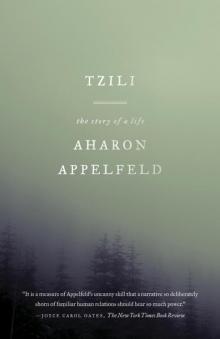 Tzili
Tzili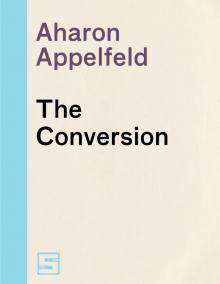 The Conversion
The Conversion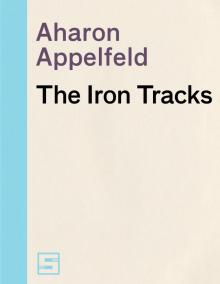 The Iron Tracks
The Iron Tracks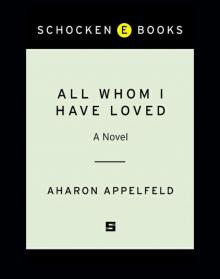 All Whom I Have Loved
All Whom I Have Loved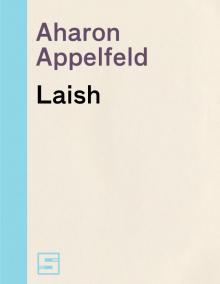 Laish
Laish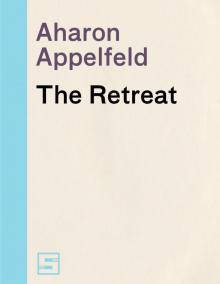 The Retreat
The Retreat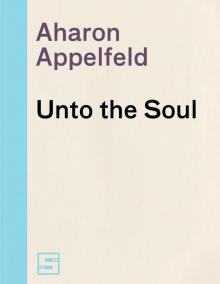 Unto the Soul
Unto the Soul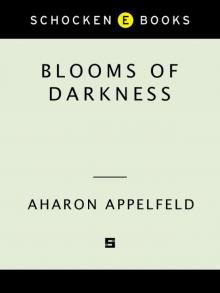 Blooms of Darkness
Blooms of Darkness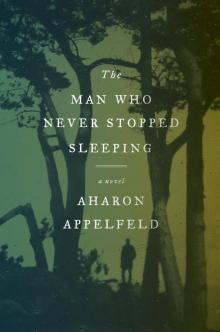 The Man Who Never Stopped Sleeping
The Man Who Never Stopped Sleeping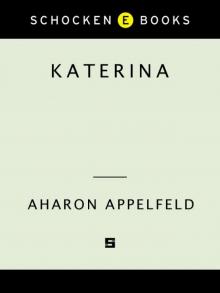 Katerina
Katerina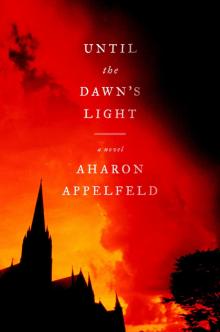 Until the Dawn's Light
Until the Dawn's Light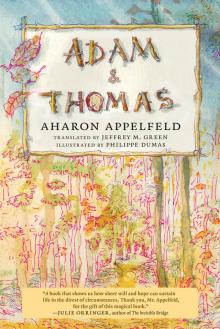 Adam and Thomas
Adam and Thomas Suddenly, Love
Suddenly, Love